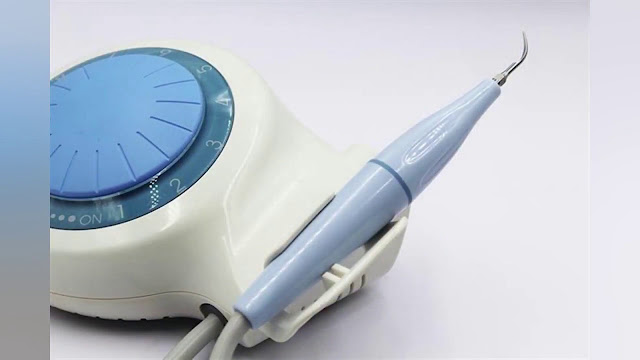Ultrasonic Dental Scalers; Used To Remove Deposits from the Root Surface of the Teeth
 |
| Ultrasonic Dental Scalers Market |
Ultrasonic dental scalers are medical devices used to remove calculus
deposits from the teeth safely and effectively. They use high vibrational energy
that effectively blasts the calculus, so it is easier to remove. Moreover, over
the years, the use of ultrasonic dental scalers has improved the practice of
dental scaling and periodontal debridement. Ultrasonic scalers have a vibrating
tip, placed gently against the surface of the tooth to remove staining,
calculus, and oral biofilm. In short, ultrasonic scalers remove deposits from
the surface of the tooth.
A vibrating tip ultrasonic of the dental scaler help removes plaque and
tartar rapidly, making it a fast and effective process. Dental scalers have
various sizes of interchangeable scaling tips, enabling multiple functions such
as sublingual scaling, root planing, and/or periodontal pocket management.
Moreover, ultrasonic scalers offer various advantages such as lightweight,
fewer chances of injury, easy removal of dental plaques, and less treatment
time, among others. Thus, there is an increasing demand for dental scalers
around the world.
Ultrasonic
dental scalers ensure better stain removal compared to hand dental scalers,
thereby reducing hand and wrist fatigue and increasing the convenience of use. A
myriad of new products has been introduced that has revolutionized
periodontal therapy over the years. For instance, American Dental Accessories,
U.S. based dental supply, and equipment company offer both magnetostrictive
and piezo ultrasonic scalers. Ultrasonic scalers offer many advantages over
conventional hand instruments by reducing the work and time involved in the
process.
Piezo Scalers offer a more effective and comfortable patient experience,
for removing plaque and calculus. Using an ultrasonic scaler can be
particularly helpful if someone requires more frequent cleanings to control gum
disease. However, ultrasonic scalers may cause damage to teeth with enamel cracks,
early caries, and resin restorations. Therefore, accurate identification of
tooth conditions and calculus is essential to minimize damage.



Comments
Post a Comment